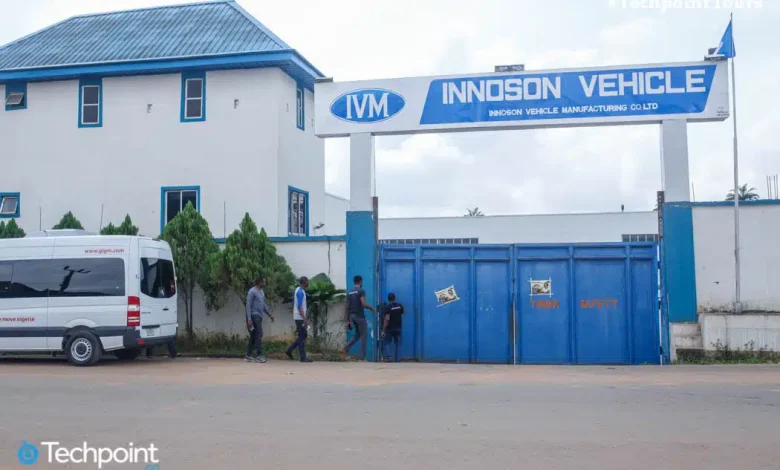
Innoson Vehicle Manufacturing Company (IVM), a vehicle manufacturer from Nigeria, has just introduced its first electric vehicle made in Nigeria. The exciting announcement was made in Nnewi, Anambra State.
Cornel Osigwe, the Head of Communications and Corporate Affairs at Innoson, shared the news on Facebook on Tuesday, September 10. “I just test-drove the first Innoson electric vehicle produced in Nnewi. We are just starting,” Osigwe wrote in his post.
About ten months ago, Osigwe had talked about the need to increase the production of locally made cars and revealed plans for an electric vehicle (EV) factory. Now, he has posted a video of himself test driving the new EV.
At that time, Osigwe mentioned that Innoson’s Chairman, Innocent Ifediaso Chukwuma, was finalizing plans to set up an electric vehicle manufacturing plant. While it is exciting that Innoson has now produced its first EV, there are still no details available about the vehicle’s pricing, specifications, the number of units made, or when it will be available for sale.
Innoson’s new EV is a significant step for the company, but Nigeria already has several electric vehicle companies. These include MAX, founded by Adetayo Bamiduro and Chinedu Azodoh; Jet Motor Company; Savenhart Investment Limited Technology (Siltech), founded by Tolu Williams; Possible EVs, founded by Mosope Olaosebikan; and Electric Motor Vehicle Company (EMVC).
Nigeria’s electric vehicle market is still growing, but there has been increasing interest recently. The Nigerian government aims to have 30% of all vehicles be electric by 2025. New companies are joining the market too, like Spiro, which recently started operations in Ogun State. Spiro is working with the Ogun State government to set up battery swap stations for electric motorcycles.
Innoson’s entry into the EV market is timely, especially with recent increases in fuel prices. Electric vehicles run on electricity rather than petrol or diesel and are charged at special stations.
E-hailing companies like Bolt have also been impacted by the fuel price hikes. To help their drivers, Bolt announced a 15% fare increase across all its ride categories in Nigeria and previously offered fuel subsidies to its drivers.





